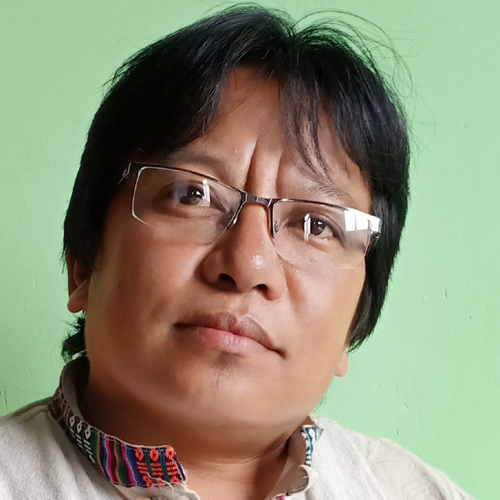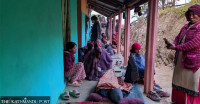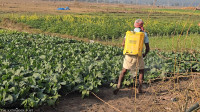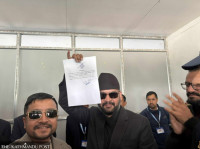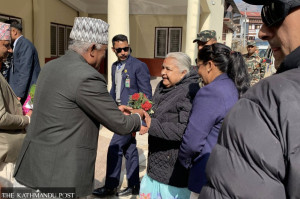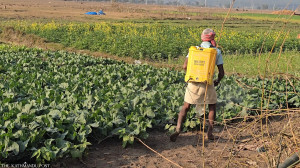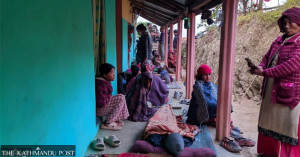Koshi Province
Families affected by Dudh Koshi Hydropower Project demand resettlement
The project is estimated to inundate 162 houses including 80 Majhi households.
Dambar Singh Rai
The families of those who will be displaced by the construction of the Dudh Koshi Hydropower Project have demanded that they be relocated. Hundreds of families who have lived in the area for generations fear displacement once the construction of the hydropower project begins.
The 635-megawatt hydropower project, which will be fed by the Dudh Koshi river, will inundate 162 houses, including 80 houses of a Majhi settlement. The project site lies in the border of Lamidanda, Ward No. 3 of Rawabeshi Rural Municipality and Bhadaure, Ward No. 6 of Chisangkhugadhi Rural Municipality.
“We don’t know where we will go,” said Aaiti Majhi, a resident of Majhigaun in Rabhuwa, Rawabeshi. “We have been living here for generations and we wouldn’t want to leave if given the choice.”
Eighty families in the Majhi settlement will be displaced due to the project’s construction and the families have been demanding authorities to relocate them to a suitable location, preferably near forests and rivers.
“Rivers and forests play an important role in our lives. We need them for cultural purposes and to continue with our traditions,” said Lal Bahadur Majhi, a resident of Majhigaun. “Even our death ritual is connected to rivers. We bid farewell to our dead in the river. We have told the authorities to relocate us near rivers and forests so as to be able to continue with our traditions.”
Authorities estimate that a total of 988 families in Khotang, Okhaldhunga and Solukhumbu districts will be affected by the hydropower project. According to them, 876 hectares of land will be inundated by the project in these districts.
Last year, speaking to local stakeholders in Rawabesi, Khotang, the then Energy Minister Barshaman Pun had assured the local residents of proper compensation. He had also informed that Rs 300 million was allocated for land acquisition in the fiscal year 2019/20 and had assured of additional budget if required. However, compensation and resettlement issues are yet to be addressed, raising concerns among the local population of the government’s inability to fulfil its promises.
According to the Detailed Project Report of the hydropower project, a five-member land acquisition fixation committee will be formed under the chairmanship of the Chief District Officer and will comprise of a land revenue officer, project chief and other representatives. The report instructs authorities to compensate the affected families once the construction work of the project begins.
The DPR states that 629,000 trees of 114 community forests, 13 leasehold forests and four national forests have to be cut down for the project.
The total cost of the project is estimated at around Rs160 billion, excluding taxes and other financial costs, and it will take six years to build the dam and other structures.
The Asian Development Bank has come on board and pledged to invest Rs60 billion on the project. The government is holding consultations with potential domestic and international investors to manage the remaining funds, according to the Ministry of Energy, Water Resources and Irrigation.
According to the feasibility study of the Dudh Koshi Storage Hydroelectric Project, a main underground powerhouse near the Sunkoshi River with four units generating 150 megawatts each and a small 35 megawatt hydro unit near the toe of the dam should be constructed for the project.
The Dudh Koshi reservoir project will produce 3,443 GWh annually, more than the expected annual output of 3,383 GWh from the proposed Budhi Gandaki scheme. The dam will be located on the Dudh Koshi river in a gorge nearly one kilometre downstream of the confluence of the Dudh Koshi River and the Thotne Khola. The main dam will have a height of 220 metres and hold back 1,581 cubic megametres of water.




 20.12°C Kathmandu
20.12°C Kathmandu